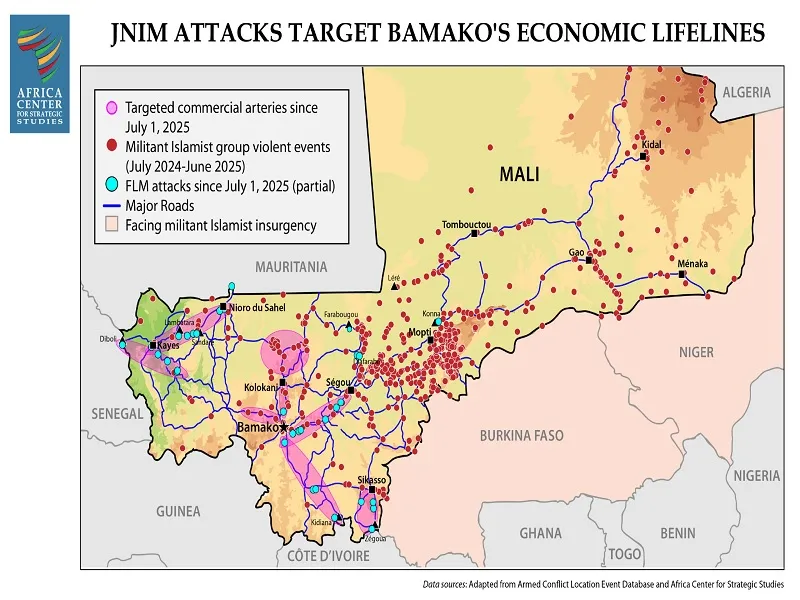The dual pretexts of crushing the world’s latest caliphate and averting another 2015-like migrant crisis could suffice for rallying the public around a French-led mission for restoring Western influence in the region.
The Wall Street Journal recently warned that “Al Qaeda Is on the Brink of Taking Over a Country”, writing that the group’s local ally Jamaat Nusrat al-Islam wal-Muslimin (JNIM) has encircled the capital, cutting it off from food and fuel. The latter’s unexpected dearth has hindered the Malian Armed Forces’ (FAM) ability to respond. According to their assessment, JNIM hopes to replicate their like-minded allies’ seizure of power in Afghanistan and Syria, namely through their own war of attrition against the state.
The FAM is nowhere near as weak as the Afghan National Army always was nor as the Syrian Arab Army ultimately revealed itself to be. Russia has been providing arms, training, intelligence, and logistical support to them for several years already and thus turned them into a force to be reckoned with. The problem is that France, Ukraine, and arguably neighboring Algeria to an extent have been backing terrorist-designated Tuareg separatists who once again entered into an unholy alliance with Islamists.
This created space for JNIM to expand elsewhere throughout the country and in neighboring Burkina Faso as well, which comprise the Sahelian Alliance/Confederation with Niger, who’s also confronting its own Islamist insurgency but led by a local ISIS ally instead of rival Al Qaeda’s JNIM. This regional integration bloc considers France to be a state sponsor of terrorism, having long accused it of backing a motley crew of such groups in their countries, with suspicion swirling that they even support Islamists.
The combined effect of these (French-backed?) terrorist offensives has been to destabilize the core of West Africa’s multipolarity processes, the Sahelian Alliance/Confederation, and create the credible possibility (which is still far from assured) that one, two, or all three of its members fall to terrorists. While they’re all Russian military partners, with Mali being the top one, Russia is still waging its special operation and therefore cannot realistically carry out a 2015 Syrian-like intervention to save them.
Nevertheless, adversarial media are expected to blame their potential falls on Russia in order to frame it as an unreliable ally, even going as far as to experience schadenfreude if terrorists take over this chunk of West Africa. About that scenario, it would be a major geopolitical event not only due to its symbolism, but also because these states control some of the smuggling routes from the populated West African coast to Europe, possibly leading to an explosion in illegal immigration and terrorist infiltration.
Moreover, the precedent of France militarily intervening in Mali to halt the advance of Islamist-backed Tuareg separatists in early 2013 at Bamako’s request suggests that Paris might unilaterally attempt something similar, but perhaps with more direct Western European and/or US backing. The dual pretexts of crushing the world’s latest caliphate and averting another 2015-like migrant crisis could suffice for rallying the public around this French-led mission for restoring Western influence in the region.
Securing access to African resources, markets, and labor is of grand strategic significance for the West as is rolling back its Chinese systemic rival’s access to the aforesaid. The average Westerner doesn’t understand the importance of this goal, however, hence the need to let the region fall in part or in whole to terrorists (and possibly help this happen). If it does, then the West can stage its latest powerplay in the Global South, but the unintended costs might ultimately outweigh the expected benefits.

